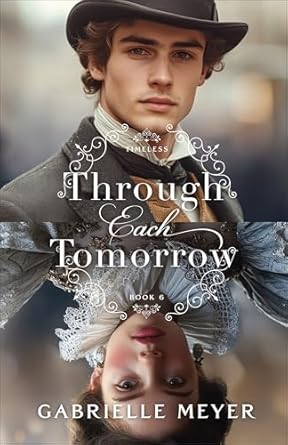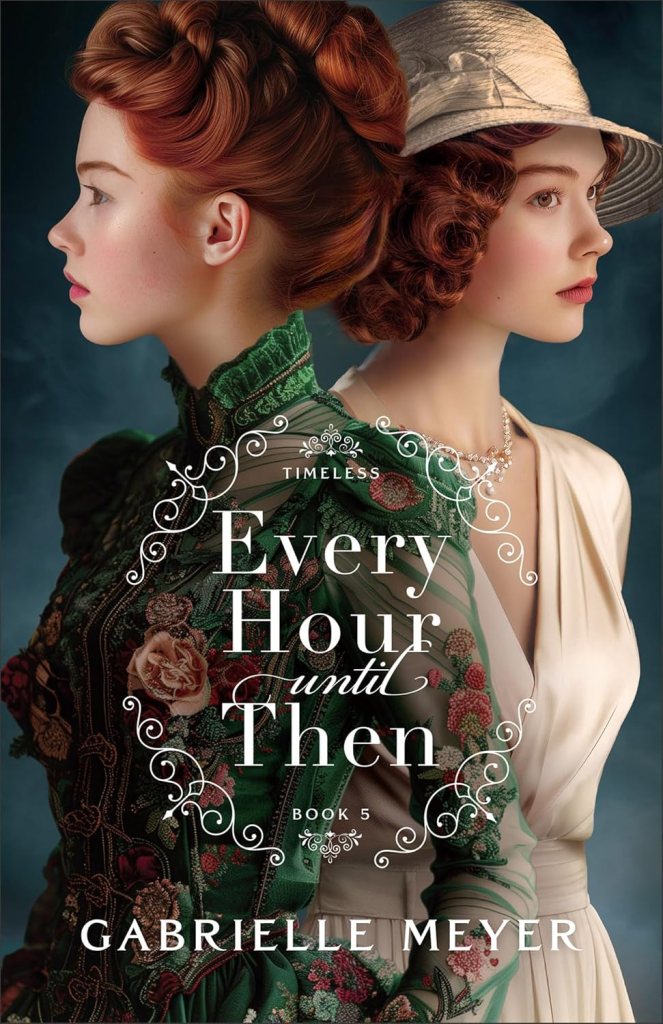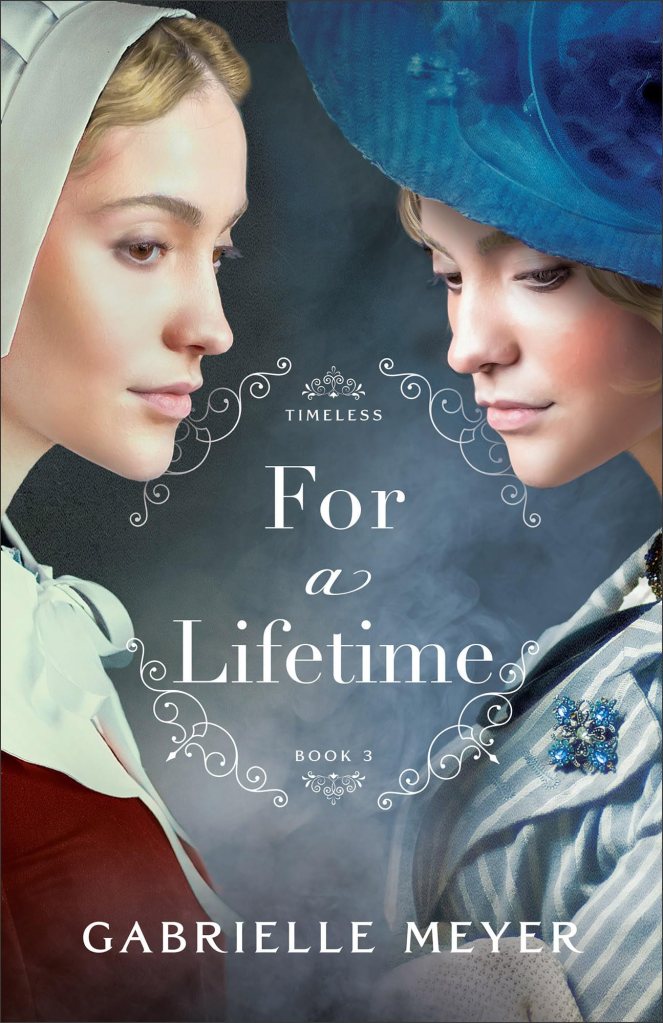Through Each Tomorrow is the sixth in Gabrielle Meyer’s Time Crossers series. Time crossers are not time travelers. They live in two timelines. They wake up one day in one time, wake up the next morning in the other, and then wake up the next day back in the first timeline. This goes on until either their twenty-first or twenty-fifth birthday, when they have to decide which timeline they want to remain in for the rest of their lives. After that, they just have one timeline.
Lady Cecily Pembrooke serves as one of Queen Elizabeth’s six maids of honor in 1563. A maid of honor in this time and place was not an attendant at a wedding: she was one of the closest attendants to the queen. The plague is raging through London, and the queen and her entourage have traveled to Windsor Castle.
Cecily had lived in 1900s, the daughter of Kathryn and Austen from the fifth book, Every Hour Until Then. She loved painting and had planned to stay in that path. But she died of polio in 1913.
Her step-brother, Charles, is a time crosser as well. In 1563, he’s the youngest member of the queen’s council and a favorite at court. In 1883, he’s trying to salvage his father’s horse farm in Virginia. It had been a successful business until the Civil War. Charles’ father had died in the war, leaving Charles with the responsibility of his mother and his sister, Ada.
Charles isn’t sure which timeline he is going to choose. He has obligations in each one. His parents in 1563 died, and he doesn’t want to leave Cecily alone. But he needs to find a way to rebuild the horse farm to take care of his mother and sister there.
His lifelong friend, Drew, occupies the same paths and has a plan. In 1863, Drew is the son of a wealthy shipping magnate. He feels sure his father will invest in Charles’ business if Drew asks. In return, he wants Drew to pretend to be the Earl of Norfolk–which technically he is in 1563–and come to Newport. His mother is in a battle for social supremacy there–which sounds a little silly, except the author says in her notes that this conflict is based on a real one. Having an earl visiting them would be a feather in his mother’s cap. Drew doesn’t care about such things, but he hopes this will put an end to the feuding.
Charles agrees if Drew, who is training to be a physician in 1563, will come to Windsor Castle to see if he can learn what is wrong with the queen.
Of course, plans based on deceptions are going to have their problems. Charles is a believer but isn’t walking with the Lord at this point. One of the things he learns is that he can’t manipulate things according to his desired outcome. He needs to seek the Lord and follow His will.
Further complications arise when Charles, Drew, and Cecily each fall in love with someone they can’t have, according to the strict class rules at the time.
It took a short while for me to settle in to the story, with so many time crossers in the same book. But I did enjoy the characters’ journeys and what they learned along the way.
It was neat to see some connections with characters from the previous books.
I have not read much about the 1500s, but everything I have read has confirmed that I am glad I don’t live in a royal court at that time. The strict unwritten rules, the politics and posturing, the constant care of not displeasing the monarch, would all add up to a lot of pressure.
After reading the first few books in this series, I wondered how many Gabrielle could write, how many different takes she could come up with for this concept. Sure, there are multitudes of historical settings she could use. But so far she has managed an unexpected twist in her time crossers’ situations in each book. I know at least one more book is coming in this series. I look forward to it.





